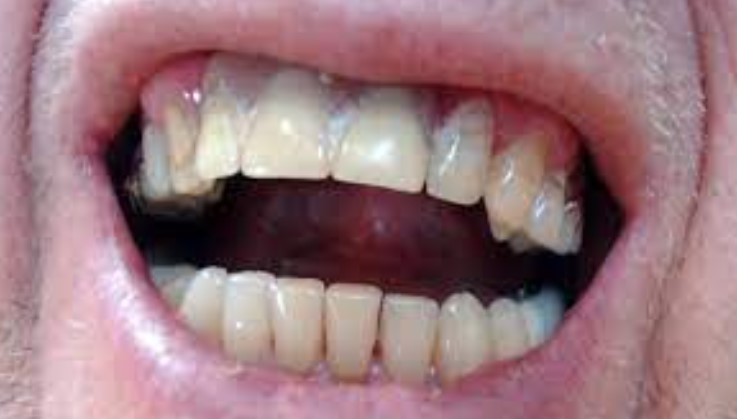How to Treat Your Decayed Tooth? Regarding decayed teeth, there have been numerous questions asked. The correct answer is simple. Do the right thing with nutrition. Next, you should consult your dentist to determine if further cosmetic or surgical treatments are needed. It never hurts to improve your diet anyway. What to do about tooth decay depends on how severe it is.
There are three factors that determine the severity of a dental problem: the amount of pain you experience, the size of the cavity in the tooth, and the fact that the tooth was previously drilled or traumatized. Understanding the past condition of the tooth will guide you to what type of treatment your tooth needs under a diet that promotes tooth demineralization. This is described in this book. The advice here is meaningless for those who neglect the importance of having enough fat-soluble vitamins in their diet while avoiding tooth decay-promoting foods.
Often, dentists are required to repair dental problems in the teeth they drill. Teeth are traumatized when large holes are drilled based on the “extension for prevention” premise. The tooth with a moderate to substantial mercury filling has lost its structural strength from the large hole drilled in it. Some older composite fillings may also exhibit this loss of structural integrity if they are weakly bonded to the tooth.
Read More – Teeth Gums and Anti-Scorbutic Vitamins

An analogy for these types of teeth is a house without a roof. Without a sound roof, foul weather can enter the house. There will likely be damage to the house from the weather, and it will be difficult to clean. Similar to a house without a roof, a drilled tooth is like one without a roof. Your body has to work extremely diligently to clean, repair, and maintain a damaged tooth. This is because it has no protection from your mouth environment.
If your house did not have a roof, would it make sense to continue cleaning it up after every rain or snow? No. It would make sense to fix the roof to prevent the problem in the first place. Likewise, faulty dentistry needs to be fixed with effective dentistry. Teeth with mercury fillings, toxic crowns, or conventional root canals are like houses without roofs. With teeth that have already been subjected to the dentist’s drill, no matter what the condition of the tooth, be it painful, temperature sensitive, cracked, or infected your treatment path will require the work of the tooth handyman, or the dentist.
Experienced dentists can bond teeth, save inflamed nerves, and restore tooth structural integrity with carefully bonded ceramics or composites. Once the tooth is safe and not traumatized, it heals faster. The tricky part is that if you go to a dentist with a large amount of tooth decay, he usually wants to remove all of the decayed parts of the tooth, even part of the tooth that can rematerialize.
How long you wait to rematerialize the tooth, how much the dentist needs to drill, if at all, and if you should have a temporary or permanent filling placed while the tooth heals is all entirely up to you to decide along with, one hopes, supportive advice from your dentist. Teeth that have never been drilled usually respond very well to dietary intervention. You should notice a significant improvement in tooth pain or sensitivity within a few days.
Once the tooth has become hard, you can decide with your dentist if it needs extra structural support from a filling. In this case, you could do a no-drill filling if there was a large hole that needed to be sealed up. It is not recommended to leave large holes untreated, although some people make this choice for personal reasons.
Tiny cavities, like most people, do not really need drilling or fillings once they rematerialize. Usually, there will be very few discolored or black spots on the tooth. Sometimes even cavity discoloration disappears completely on an excellent diet. With an excellent diet, your tooth will now constantly try to heal itself. If your dental condition has been going on for years and years, it could take many weeks or even many months to fully rematerialize the damaged tooth.
If your tooth is constantly getting aggravated such as from nighttime tooth clenching, tooth grinding, a poor bite, or dental work that is falling apart, the healing process will be very slow if it progresses at all. Meanwhile, if your tooth is in a lot of pain, it may not be easy or possible to wait for weeks and months for your body to heal the tooth nutritionally to the point where it stops hurting.
Therefore, the only way to know is to implement as much as you can of the tooth infection program explained earlier in this chapter. If your painful, inflamed tooth does not radically improve in 24-48 hours, it likely needs dental treatment.
Read More – What Happens During A Typical Dental Checkup?
